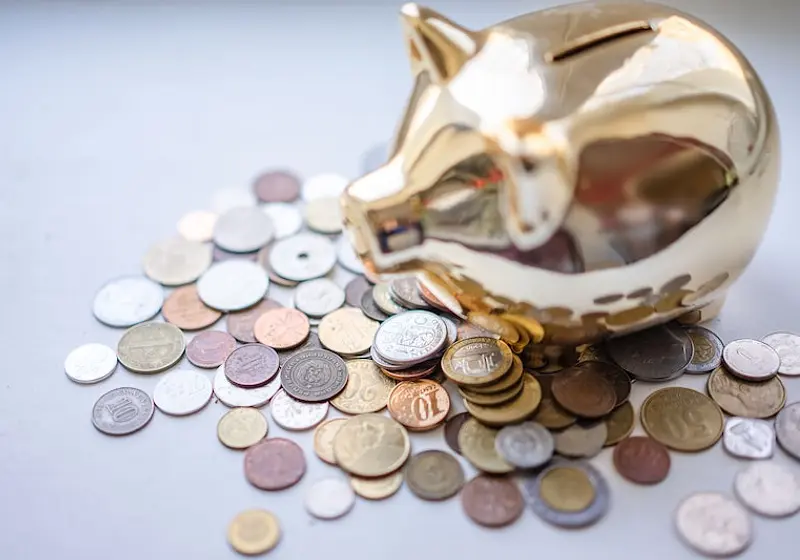As teens, we should always try to prepare ourselves with skills that will be beneficial in the future. One of them is learning how to spend and save your money wisely. Even if you don't have an income yet, managing something as small as your allowances will certainly prepare you for bigger financial challenges in your adult life. Here are some tips to help you become a smarter shopper and saver!
1. Make a shopping list, and stick to that list at all costs.
This one is hard if you can't resist sales, cute items, or impulsivity in general, but it can save you a lot of money, especially if you're an impulsive shopper. List down all the things you need to buy, and learn to discipline yourself to only get the items that you've listed. To help you stick to your list, ask a friend or a family member to assist you while shopping.
Have them tell you if your shopping impulse is getting out of control. If that isn't possible or you have family and friends that cave into what you want all the time, proceed to the next tip.
2. Ask yourself questions before buying anything
Try asking yourself some questions every time you feel like you need to buy an item. In general, just ask yourself "Do I need this? Why do I want this? What can I use it for and for how long?
Will I get bored with it? Am I responsible enough to take care of this item for its longevity of usage? Is it of good quality?" Some more item-specific questions are:
For clothing and makeup: "Would this be suitable for every day? If it's only for special occasions, how often do I attend such occasions? How would they match with the stuff that I already own?"
For books and stationery: "Do I still have blank notebooks and unread/halfway read books at home? Am I buying this just because it looks visually appealing? Do I still have something like it at home?"
For room decor and furniture: "How can I utilize this for every day? Where will I put this, can I visualize it? Will I use this often?"
For frivolous items that don't serve a purpose (e.g. toys): "For what purpose am I buying this? Will it keep me entertained for a long time? Do I want this out of curiosity alone? Can I try using this for free without buying it? (if you can and you're only curious about how the item feels like to be used/played with, do that instead) Do I want this because it's all over social media or because it's currently trending?"
(For wanting items like this, you can usually blame the internet for making you have an irresistible urge to have it. The pressure to follow a certain useless trend or fad can affect you more than you think. It's just smart marketing.
The fad will die out sooner or later. Remember slime and fidget spinners? The rainbow highlighter? Or are you familiar with the huge trend of having Pet Rocks in 1975? Stop falling for smart marketing; be a smart shopper and battle against it instead.)
3. Set a budget
Budgeting is a great way to help you save money and avoid buying things you don't need. It can be daily, weekly or monthly. Make sure to be realistic when setting a budget, don't set it too high or too low. If you have an allowance or a stable income, use that as a guide. Set a target for the amount of money that you want to save from your allowance or income.
Budgeting has helped me a lot, especially when going out to places where I'm prone to overspending, like clothing stores and art supply stores. Having a limit helps me be more careful about how much I spend and what I spend for.
If you're having trouble with budgeting by yourself, you can ask someone who has done it before or try using a mobile budgeting app. There are apps that can sync to your bank account as well, so budgeting can be easier for you! Some of them customize your budget according to your income and financial goals and alert you when you're spending too much.
Some great budgeting apps are Mint, Wally, and Albert. Check them out!
4. Record your expenses using a personal monthly journal
Are you familiar with accounting? Learn a very basic accounting skill by making a personal general journal. List down all the money you've earned and all the money you've spent and by the end of the month, you'll be able to see what you mostly spend your money on. It doesn't have to be too accurate or perfect like the ones used in companies; after all, it's just you that you're looking after, not the fate of a corporation. If you want, you can decorate your journal too!
At the end of the month, take a close look at the journal. If you overspend on morning coffee every day, maybe you can skip a few days without it and try making your own at home. You get the idea. Spot where you're spending too much money on, and if it's not a necessity or responsibility, try cutting down on it.
5. Don't surround yourself with people who are making you into a consumerist
"Have you seen that new eyeshadow palette? Ugh, don't you just want it?"
"C'mon, just this once. Treat yourself, buy it."
"Let's get matching shirts!" (Proceeds to pressure you into matching a whole outfit with them)
Do you have friends like this? The words above might seem a tad exaggerated, sounding like they come from a popular girls' clique in a chick flick, but sometimes we have people in our lives that say similar things. The best way to overcome this situation is to limit your interactions with these people, especially if you feel that they're greatly influencing your spending habits.
You don't have to cut them off of your life completely, though! If the person is a close friend or a family member, you can provide them some constructive criticism by telling them directly that their words and actions are impacting you negatively in the means of spending.
6. Stop buying things for a sense of security
Trends after trends fill up our social media feeds. Later on, you'll start seeing your friends wearing that hot new item or endlessly talking about it. Then you'll realize that you don't own what everyone else is raving about. You'll start to think, "Should I get one for myself?"
When you buy something for yourself, make sure that you're buying it because you genuinely like what you're buying. Sometimes we feel like we like a certain item because it's all over the internet, even though deep down, we know that the trend is going to die out in a few months. You'll start having purchases that you regret making because of this.
Learn how to differentiate between wanting something because you really want it, or wanting something to feel secure in this increasingly consumerist society. Satisfaction in life is more than just constantly cycling through new items all the time to ease that urge to fit in inside you.
Not only is this good for your wallet, but it's also extremely healthy for your mental health. In the end, you'll find yourself having a lot of savings left from resisting to buy things that you don't actually need, and you can use it for more useful purchases.
7. Set priorities
Your school bag's zipper is stuck, your phone's screen is cracked, you've outgrown some of your clothes... But your favorite author recently released a long-awaited addition to your favorite series, a makeup company and your favorite beauty YouTuber made a collaboration palette that you're planning to save up for and there's this really cool video game that you haven't got. Which one should you be spending on first? Well, it does seem pretty obvious when you're just reading it here, but in reality, it can get a lot tougher to decide. What should you do to resist the temptation of spending on the less important things?
Write down your priorities on a piece of paper, from the most important to the least important. Which one should be immediately covered? Which one can wait a little longer?
8. Wait until your impulse desires die out
A very effective way to stop impulsive purchasing for things that aren't very essential is to wait a day or two first before buying what you have in mind. For things that'll cost you a more significant amount of money, wait a month. List them out for the time being, and when you don't want them anymore, just cross them out.
9. Save your small changes
Honestly, loose change can get annoying at times. But they still have some value in them, especially if you keep them instead of throwing them away! Set your change aside and put them in a container of some sort.
Keep putting in change and wait until your container is full. You'll be surprised at the amount of money you'll have from all of the saved changes!
10. Invest in good quality items
This tip might seem questionable at first, knowing how better quality items can cost you more money, but believe me, it'll cost you less money in the long run. When you buy good quality items, you won't need to spend more on replacement or repair which is often the case for cheaper stuff. This is especially true for clothes, bags, shoes, and furniture, as you need these items to be durable enough to be used for a long time.
What do you think of these tips? Which one would you like to try first?












